Search
Search Results
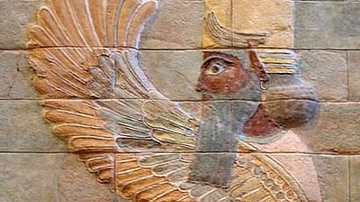
Image
Winged Sphinx of Susa
Winged Sphinx from the palace of Darius the Great (549-486 BCE) at Susa.

Definition
George III of Great Britain
George III of Great Britain (r. 1760-1820) was the third of the Hanoverian monarchs, and he remains the longest-reigning king in British history. His six decades on the throne saw the creation of the United Kingdom, the loss of the 13 American...

Article
A Brief History of Egyptian Art
Art is an essential aspect of any civilization. Once the basic human needs have been taken care of such as food, shelter, some form of community law, and a religious belief, cultures begin producing artwork, and often all of these developments...

Image
Phoenician Ivory Sphinx Plaque
This ivory plaque is part of the so-called "Nimrud Ivories." The sphinx wears the typical Egyptian Pharaohs' double crown and an apron with cobra. This indicates that the plaque was made by a Phoenician craftsman. From Nimrud (ancient Kalhu...

Image
Oedipus & the Sphinx of Thebes
A red-figure tondo showing Oedipus and the sphinx of Thebes, from Vulci, 470 BCE.
Vatican Museums, Rome.
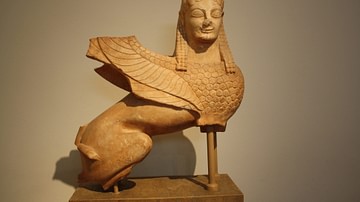
Image
Greek Funerary Sphinx
A sphinx in pentelic marble, from a funerary stele, c. 570 BCE.
National Archaeological Museum, Athens.
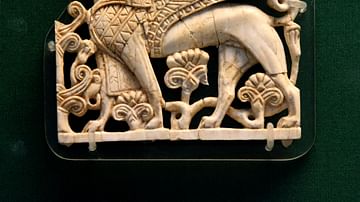
Image
Nimrud Ivory Plaque of an Egyptian Sphinx
A winged human-headed sphinx wears the double crown of Egypt. An apron hangs down on the chest with a projecting uraeus (rearing cobra) similar to those worn by Egyptian pharaohs. A striking Phoenician style. Excavated by Sir Max Mallowan...
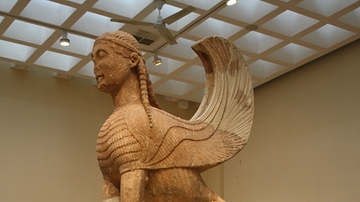
Image
Naxian Sphinx of Delphi
The Sphinx dedicated to the oracle of Delphi by the state of Naxos, c. 560 BCE. Originally, it was placed atop a 10 m tall Ionic column. (Delphi Archaeological Museum).

Image
Archaic Sphinx, Athenian Acropolis
Archaic period sphinx (6th century BCE), Acropolis Museum, Athens.
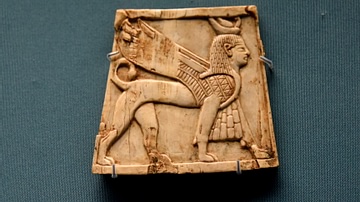
Image
Nimrud Ivory Panel of a Winged Sphinx
Never seen by the public before 2011. A small fragment of an ivory plaque from Nimrud. This winged-sphinx is Egyptian and wears the double crown of Egypt as well as a chest apron, the typical royal costume of Egyptian pharaohs. Phoenician...